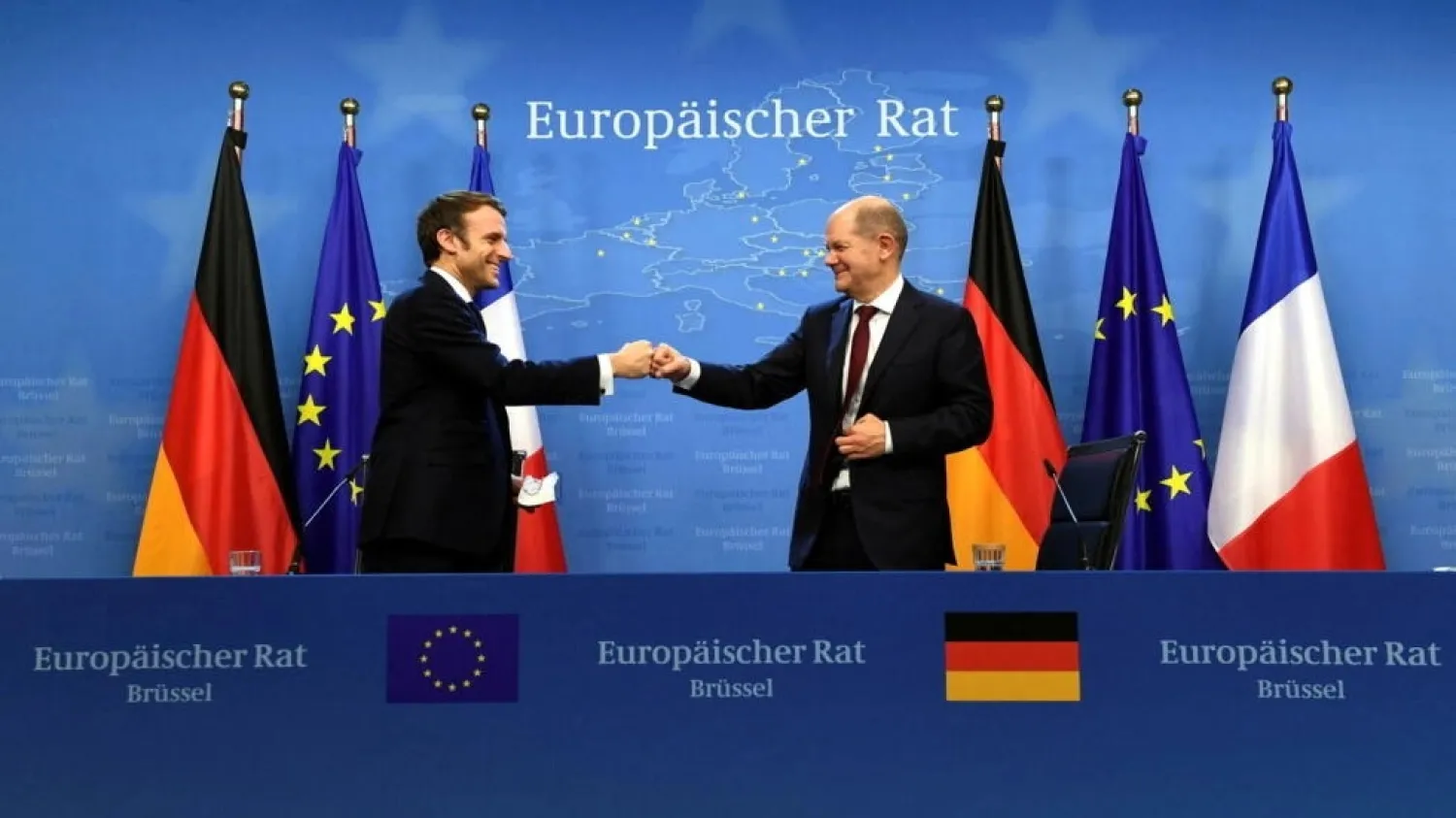A burgeoning row between France and Germany fired by differences over nuclear energy and combustion engines threatens to spill over into a gathering of the 27 European Union leaders on Thursday.
A row erupted between two of the European Union's biggest economies after Berlin upset some of its partners, notably France, by blocking -- at the last minute -- a landmark deal to prohibit new sales of fossil fuel cars from 2035, AFP said.
The ban is key to Brussels' ambitious plan to become a "climate neutral" economy by 2050, with net-zero greenhouse gas emissions.
In an unprecedented action this month, Germany intervened after the car ban had already been approved under the EU legislative process. It demanded that Brussels provide assurances the law would allow the sales of new cars with combustion engines that run on synthetic fuels.
While the last-minute block frustrated France, Paris has in turn irked Berlin by insisting on giving nuclear energy greater prominence in EU proposals to produce more green technology in Europe.
Paris and Berlin have traditionally worked together to push forward the EU agenda. But the split hangs over the summit as the leaders meet to discuss EU support for Ukraine and how to boost economic competitiveness in the face of threats from US and Chinese subsidies officially on the agenda.
The European Commission, the EU's executive arm, has been holding talks with Germany's transport ministry to resolve the dispute over cars.
While no agreement has yet been reached, EU diplomats say there could be a separate proposal in the next few days.
Germany, which boasts one of the world's biggest car manufacturing industries, blocked the deal signed last year in a move viewed as a product of domestic politics. Chancellor Olaf Scholz heads a coalition made up of his social democrats and rival Greens and liberals.
"It is above all a German affair and an internal debate in German politics that has reached Europe," a senior EU diplomat complained.
"It's not a good look to return to a debate when the European Parliament and European Council have agreed a deal. We cannot run things like this," the diplomat added.
The synthetic fuels Germany wants an exemption for are still under development, produced using low-carbon electricity. The technology is unproven, but German manufacturers hope it will lead to the extended use of combustion engines.
While Germany led the revolt against the combustion engine ban, it is not alone. It has formed a small alliance with countries including Italy, another major car manufacturer, and eastern European states such as Poland and Hungary.
France has not held back from singling out Germany for criticism.
Earlier this month, French Transport Minister Clement Beaune accused his German counterpart of leading "a revolt" against the ban on new petrol- or diesel-engine cars.
Against this tense backdrop, French President Emmanuel Macron will meet Scholz one-on-one on Friday.
France's nuclear affair
Another bone of contention they will have to thrash out is France's push for EU recognition that nuclear power has a role to play in Europe's green future.
On March 16, the European Commission launched new plans to boost clean technology production in Europe by ensuring permits are given out faster and projects given better access to funding.
Nuclear-powered France wanted atomic energy to be included in the list but, while it failed to achieve that goal, it won a small victory.
Nuclear did feature in the proposals announced but the plans only apply to fourth-generation reactors that do not yet exist, meaning atomic energy would obtain little of the advantages on offer.
Macron will "focus on the role of nuclear in decarbonisation" during the leaders' meeting, a French government source said.
Another senior EU diplomat was less optimistic about what the summit would achieve, given the distance between the capitals.
"We don't expect a spectacular breakthrough on any specific issue," the diplomat said.









